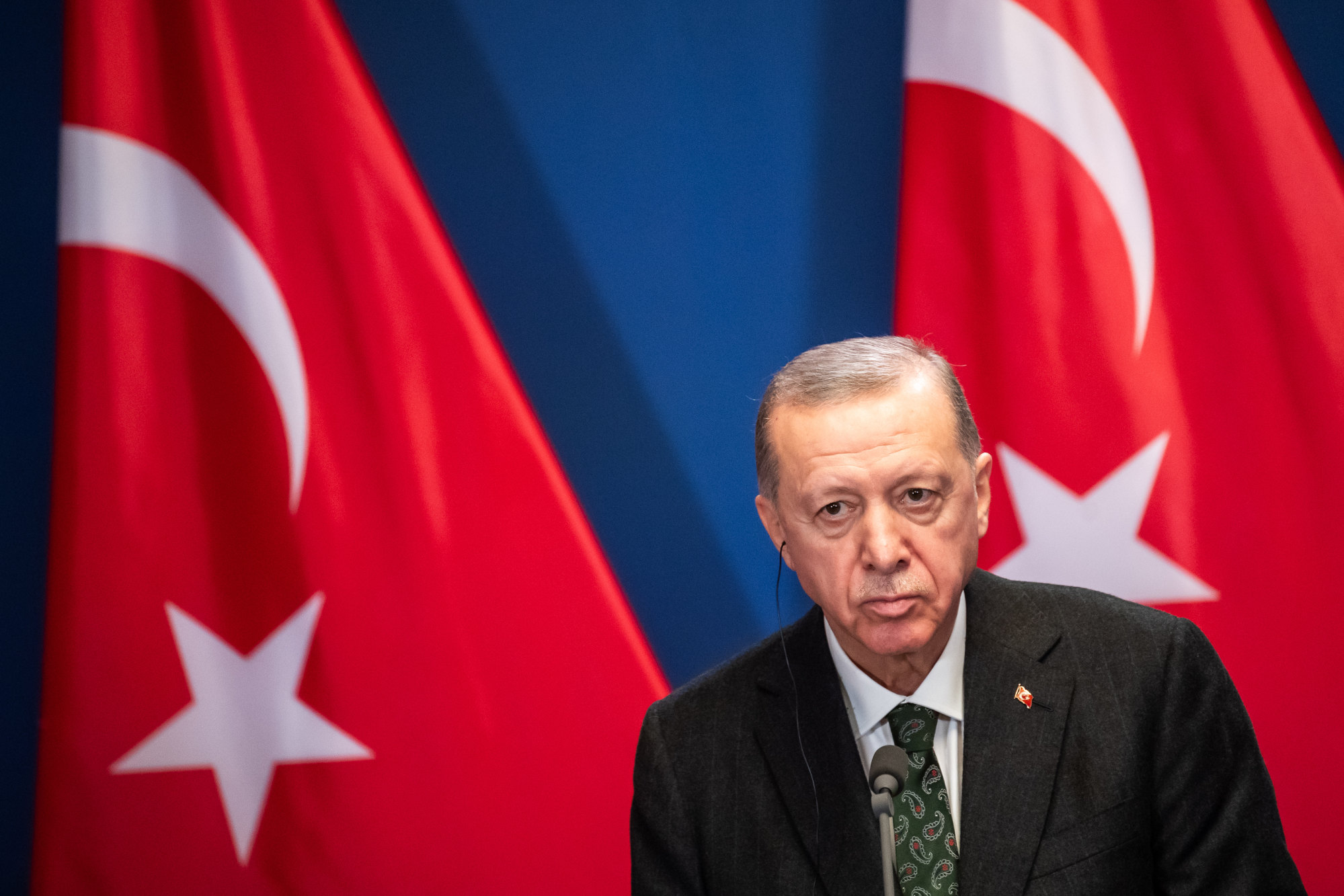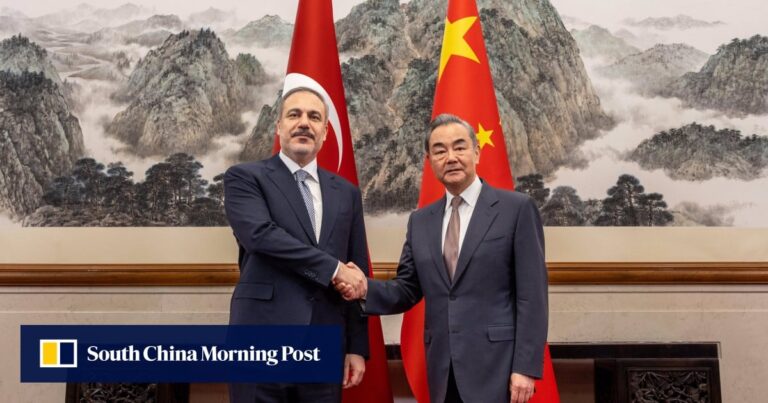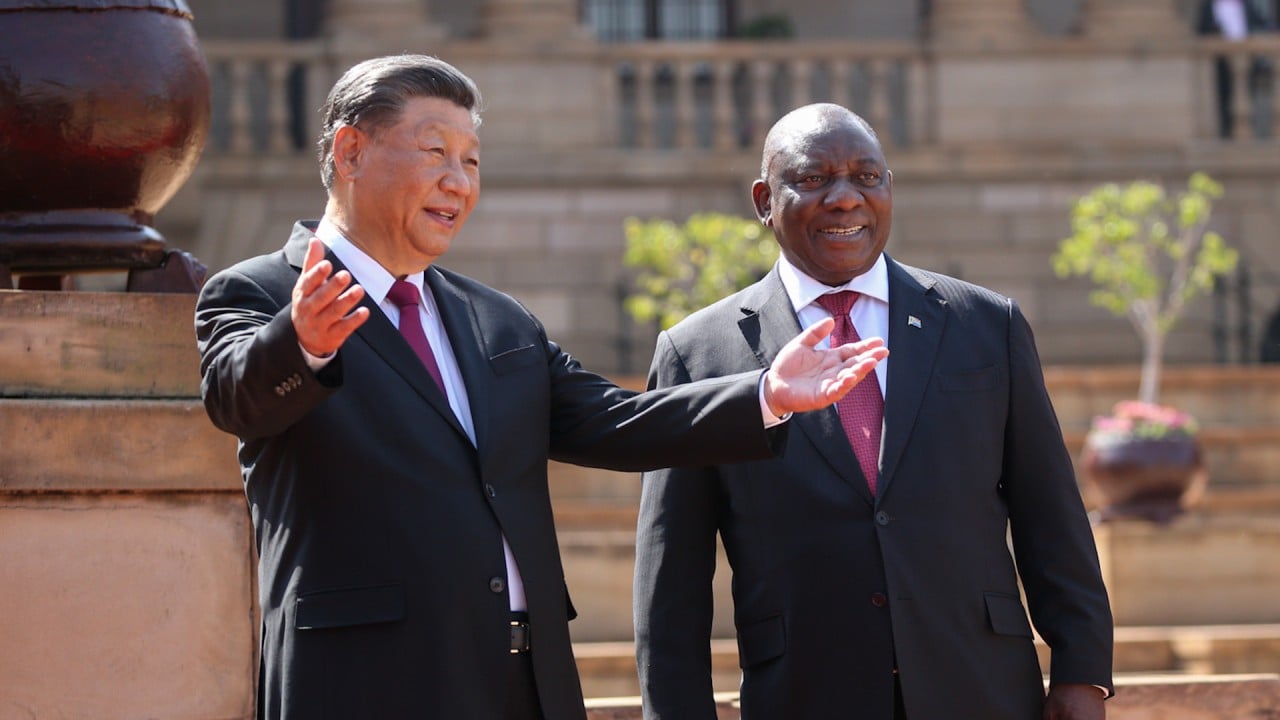Phidan also met China’s top security official, Chen Wenqing, on Monday and both sides indicated their willingness to boost bilateral security cooperation, the state-run Xinhua News Agency reported.
On Tuesday, Foreign Minister Phidan met with Chinese Foreign Minister Wang Yi and Vice President Han Zheng.
According to the Chinese statement, Fidan told Han that Turkey adheres to the one-China principle and “will not tolerate any activities in Turkey that undermine China’s territorial integrity”, adding that it was ready for close high-level exchanges with Beijing.
Fidan is due to visit the cities of Urumqi and Kashgar in the Xinjiang Uighur Autonomous Region before concluding his trip on Wednesday, Turkish broadcaster TRT said.
If the visit is confirmed, Fidan would be the highest-ranking Turkish government official to visit the region since Turkish President Recep Tayyip Erdogan visited the region as prime minister in April 2012.
At the CCG event on Monday, Fidan said he looked forward to attending a meeting of the mechanism in Russia next week, when foreign ministers of the BRICS countries (Brazil, Russia, India, China, South Africa, Iran, Egypt, Ethiopia, Saudi Arabia and the United Arab Emirates) will meet in the western Russian city of Nizhny Novgorod as part of preparations for a summit in Kazan in October.
One topic is expected to be the possibility of Turkey, a NATO ally, joining BRICS.
Erdogan announced his country’s desire to join the BRICS at a BRICS summit in Johannesburg six years ago, but little progress has been made since then.
Speaking at the CCG event, Fidan said one of the key pillars of Turkey’s foreign policy is building strong economic ties in an institutionalized manner.
He said Turkey had long sought EU membership but had never been accepted for full membership in the European Union by some key EU countries because of “identity politics”.
“So we have to look at other options,” Fidan said.
While he noted that BRICS “still has a long way to go,” he said, “we cannot ignore the fact that, as an important cooperation platform, BRICS provides a good option for other countries.”
“I think BRICS has potential,” he added.
Turkey applied to join what was then the European Economic Community nearly 40 years ago and was officially accepted as a full EU candidate for membership in 1999.
Ankara’s accession talks began in 2005 but have long been stalled with European capitals over a range of issues from human rights to foreign policy.

Russian Foreign Minister Sergey Lavrov said in Moscow on Friday that BRICS’ doors are “open to representatives of the most diverse economic and political systems and macro-regions.”
“The only condition is that they must agree to work on the fundamental principle of sovereign equality of states,” he said.
Fidan said investment and trade issues were part of the agenda for his visit to China, noting that the two countries were still “far behind” in leveraging their full economic potential.
He said Turkey welcomes Chinese investment, especially in major infrastructure projects, but that joint investment projects have slowed down in recent years.
“That’s one of the things I want to raise during my time in China — to really correct this slowdown, accelerate it, identify what the bottlenecks are and why we are experiencing this slowdown,” he said, adding that they would also discuss ways to balance bilateral trade.
In the first four months of this year, Chinese exports to Turkey fell 5.1 percent year-on-year in U.S. dollar terms, while imports fell 4.4 percent, according to Chinese customs data.


